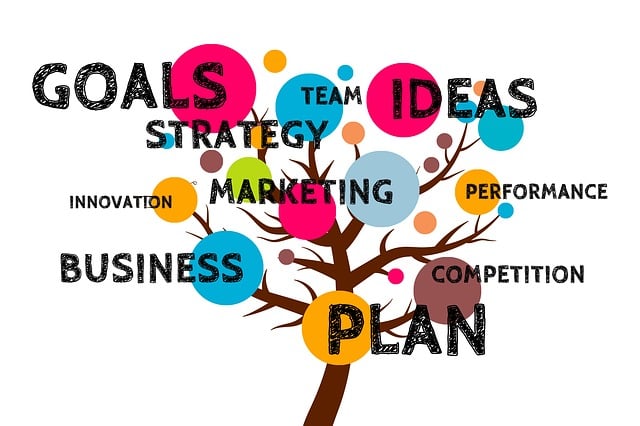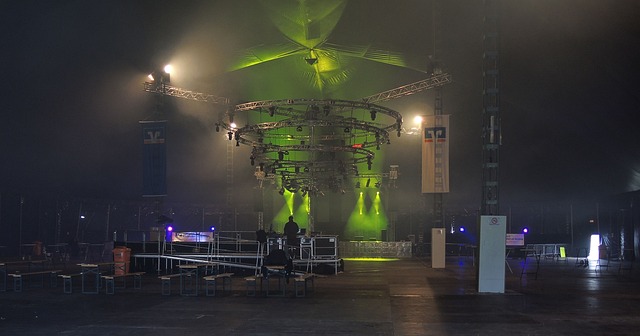Local businesses can significantly enhance their event planning by leveraging social media as a dynamic platform to amplify event reach and foster audience engagement. By strategically utilizing platforms like Facebook, Instagram, and Twitter, these businesses can create shareable content that not only promotes the event but also encourages attendees to participate and spread the word through their networks. Engaging with the audience in real-time, employing interactive features such as live streaming and stories, and analyzing social media metrics to tailor marketing strategies are key practices for successful event planning. Post-event interactions provide valuable feedback that can be used to refine future events, ensuring that they resonate with the target demographic. User-generated content, targeted follow-up strategies, and maintaining a strong online presence post-event are essential to sustain interest and community engagement. This holistic approach not only maximizes event visibility but also drives long-term benefits for local businesses through increased brand loyalty and return on investment, all under the umbrella of Event Planning for Local Businesses.
Navigating the dynamic landscape of social media offers local businesses a robust platform for event planning. This article delves into mastering social media events, providing actionable insights across key areas: leveraging these platforms to design local business events, crafting narratives that resonate, engaging targeted audiences, and capitalizing on trends and hashtags for greater visibility. Additionally, it explores the power of user-generated content in amplifying event impact and offers a guide for post-event analysis to maintain engagement and sustain momentum. Local businesses can harness these strategies to transform their events into thriving online experiences that captivate and connect with attendees long after the event concludes.
- Leveraging Social Media for Effective Local Business Event Planning
- Crafting a Compelling Event Narrative on Social Platforms
- Targeted Audience Engagement: Strategies for Local Business Events
- Utilizing Hashtags and Trends to Boost Visibility of Your Local Event
- Integrating User-Generated Content to Amplify Event Impact
- Post-Event Analysis and Follow-Up: Sustaining Momentum on Social Media
Leveraging Social Media for Effective Local Business Event Planning

In the realm of local business event planning, social media stands as a potent tool for crafting and amplifying event experiences. By strategically leveraging platforms like Facebook, Instagram, and Twitter, businesses can create anticipation, manage invitations, and engage with their audience in real-time. A well-planned social media campaign can transform a local event into a notable occasion by tapping into the broader community and attracting participants from beyond the immediate locale. Local businesses should focus on creating shareable content that highlights the unique aspects of their events, encouraging attendees to document and disseminate their experiences online. This not only broadens the event’s reach but also fosters a sense of shared excitement and community involvement.
Moreover, local businesses can utilize social media analytics to gauge interest and fine-tune their event planning efforts. By monitoring engagement metrics such as likes, shares, and comments, businesses can adjust their marketing strategies in real-time, ensuring that promotional activities resonate with their target audience. Social media also provides a platform for post-event discussions, allowing businesses to gather feedback and insights that can inform future event planning endeavors. By integrating live features like stories and live streaming, local businesses can provide a dynamic, behind-the-scenes look at event preparations, further engaging their audience and building anticipation in the lead-up to the event itself. This interactive approach not only enhances the event experience but also solidifies the business’s online presence and reputation as an event planner within the local community.
Crafting a Compelling Event Narrative on Social Platforms

Crafting a compelling event narrative on social platforms is pivotal for engaging local audiences and amplifying the reach of event planning for local businesses. A well-crafted story not only captures attention but also fosters a connection with potential attendees, turning passive observers into active participants. To initiate this process, businesses should identify the core message or theme that resonates with their target demographic. Utilizing social media’s diverse content formats—from vivid images and short videos to interactive polls and live Q&A sessions—companies can weave a narrative that is both visually appealing and informative. This multifaceted approach not only outlines the event’s details but also tells a story that invites followers into the experience, piquing their interest and encouraging them to participate.
Effective event planning for local businesses on social media hinges on strategic content creation and consistent engagement with the audience. It’s crucial to maintain a steady flow of information leading up to the event, balancing teasers that generate buzz with educational content that informs potential attendees about what to expect. By leveraging social media analytics, businesses can tailor their narrative, optimizing post timings and types for maximum visibility. This data-driven strategy ensures that the event’s story unfolds in a way that aligns with audience preferences, driving higher engagement rates and, ultimately, a more successful event.
Targeted Audience Engagement: Strategies for Local Business Events

In the realm of digital marketing, local businesses can leverage social media to orchestrate events that resonate with a targeted audience. Effective event planning for local businesses hinges on understanding and engaging the community’s demographic on these platforms. To capture the attention of potential attendees, it’s crucial to tailor content and promotional strategies to align with the interests and behaviors of the specific audience segment being targeted. Utilizing social media analytics tools can help businesses identify key traits of their followers, enabling them to craft messages that are more likely to generate interest and participation. For instance, a local bookstore could use insights from its followers’ activity to host an author signing event, promoting it through targeted ads and posts that highlight popular genres or authors among the community. Engaging content should not only inform but also invite conversation and interaction, such as polls, Q&A sessions, or contests that tie back to the event. By fostering a two-way dialogue, businesses can build anticipation and excitement for their social media events, ensuring that when the day arrives, there’s a buzz in the local area about the experience on offer.
Furthermore, successful engagement strategies extend beyond mere promotion. Local businesses should consider partnerships with influencers or community leaders who have a strong following within the target demographic. These collaborations can amplify the event’s reach and credibility. Additionally, offering exclusive content or early access to attendees through social media platforms like Instagram, Facebook, or Twitter can incentivize participation and sharing, organically expanding the event’s audience. A well-planned social media event for local businesses should include a mix of live updates, real-time interaction opportunities, and post-event content to maintain momentum and sustain engagement long after the event concludes. By thoughtfully integrating these strategies into their event planning, local businesses can create impactful social media events that not only meet but exceed audience expectations.
Utilizing Hashtags and Trends to Boost Visibility of Your Local Event

In the realm of event planning for local businesses, leveraging social media is pivotal for heightening visibility and attracting a targeted audience. A strategic approach to utilizing hashtags and tapping into trends can significantly amplify the reach of your local event. Hashtags serve as searchable keywords that categorize content on social platforms, making it easier for users to discover your event. When selecting hashtags, focus on those relevant to your event’s theme, location, and timing. For instance, incorporating locally-relevant tags alongside broader, trending topics can capture the attention of both local participants and a wider audience with shared interests. This dual approach ensures that your event gains traction within the local community while also connecting with a broader demographic on social media.
Moreover, staying attuned to current trends and incorporating them into your event’s narrative can enhance its relevance and appeal. Trending topics, whether they are viral challenges, national events, or cultural phenomena, provide a timely context that resonates with users. By aligning your event with these trends through creative content and engaging social media campaigns, you can increase its visibility and encourage sharing among participants and onlookers. This not only boosts the event’s profile but also fosters a sense of community and connection that is often the heart of local business events. Utilizing hashtags and trending topics in concert offers a powerful tool for local businesses to enhance their event planning efforts and ensure a successful social media presence.
Integrating User-Generated Content to Amplify Event Impact

Incorporating user-generated content (UGC) into social media event planning can significantly amplify its impact, particularly for local businesses looking to enhance their online presence and engagement. UGC resonates with audiences as it often feels more authentic and relatable than brand-created content. By encouraging attendees to share their experiences on social platforms during an event, businesses can tap into a rich vein of diverse perspectives and genuine interactions. This not only increases the volume of content associated with the event but also expands its reach organically through the networks of participants. Local businesses can leverage this approach by creating specific hashtags, hosting photo contests, or inviting users to contribute stories related to the event, thereby fostering a sense of community and participation. The integration of UGC into event planning for local businesses is not just about content creation; it’s a strategic move to build brand loyalty, as consumers are more likely to trust and support brands that engage with them in an authentic manner. Moreover, by showcasing real-time user experiences, businesses can provide potential customers with a live, unfiltered view of the event, which can be more persuasive than traditional advertising methods. This method aligns with the trend towards peer influence and community-driven marketing, which is becoming increasingly influential in the digital age. Thus, local businesses that skillfully integrate UGC into their social media event planning are likely to see an enhanced event impact and a boost in their online visibility and reputation.
Post-Event Analysis and Follow-Up: Sustaining Momentum on Social Media

Engaging in post-event analysis is a critical component for local businesses looking to leverage social media events effectively. This process involves meticulously reviewing event metrics, audience feedback, and overall engagement levels. By examining key performance indicators such as reach, engagement rates, and conversion points, businesses can gauge the success of their efforts and identify areas for improvement. This analysis not only provides insights into what resonated with attendees but also highlights opportunities to refine future event planning strategies for social media. It’s through this reflective practice that local businesses can ensure their events remain impactful and aligned with their marketing objectives.
Sustaining momentum post-event is as crucial as the planning phase itself. To maintain the energy and interest generated by a social media event, businesses should employ targeted follow-up strategies. This includes leveraging user-generated content, sharing post-event highlights, and providing exclusive offers to participants. Regularly engaging with the audience through social media platforms keeps the conversation going and reinforces the community feeling established during the event. Moreover, businesses can capitalize on the buzz by releasing relevant content that ties back to the event themes, thus keeping the event top-of-mind for attendees and prospective customers alike. By integrating post-event follow-up into their overall social media strategy, local businesses can effectively convert one-time attendees into loyal followers and customers, thereby extending the lifecycle of the event and enhancing the return on investment.
Effectively harnessing social media is transformative for local business event planning. The strategic approaches outlined in this article, from crafting a compelling narrative to leveraging targeted engagement and hashtag trends, underscore the potential of these platforms to amplify event impact and visibility. By integrating user-generated content and conducting thorough post-event analyses, businesses can not only sustain momentum but also foster long-lasting connections with their audience. These practices collectively demonstrate that social media is an indispensable tool for local business event planners aiming to stand out in a crowded digital landscape. By continuously monitoring platform analytics and staying attuned to emerging trends, businesses can refine their strategies to stay ahead of the competition. Building authentic relationships with followers and encouraging active participation further solidifies the event’s presence both online and offline. Ultimately, maximizing business impact with social media requires a cohesive approach that blends creativity, adaptability, and data-driven insights to achieve sustainable success.
